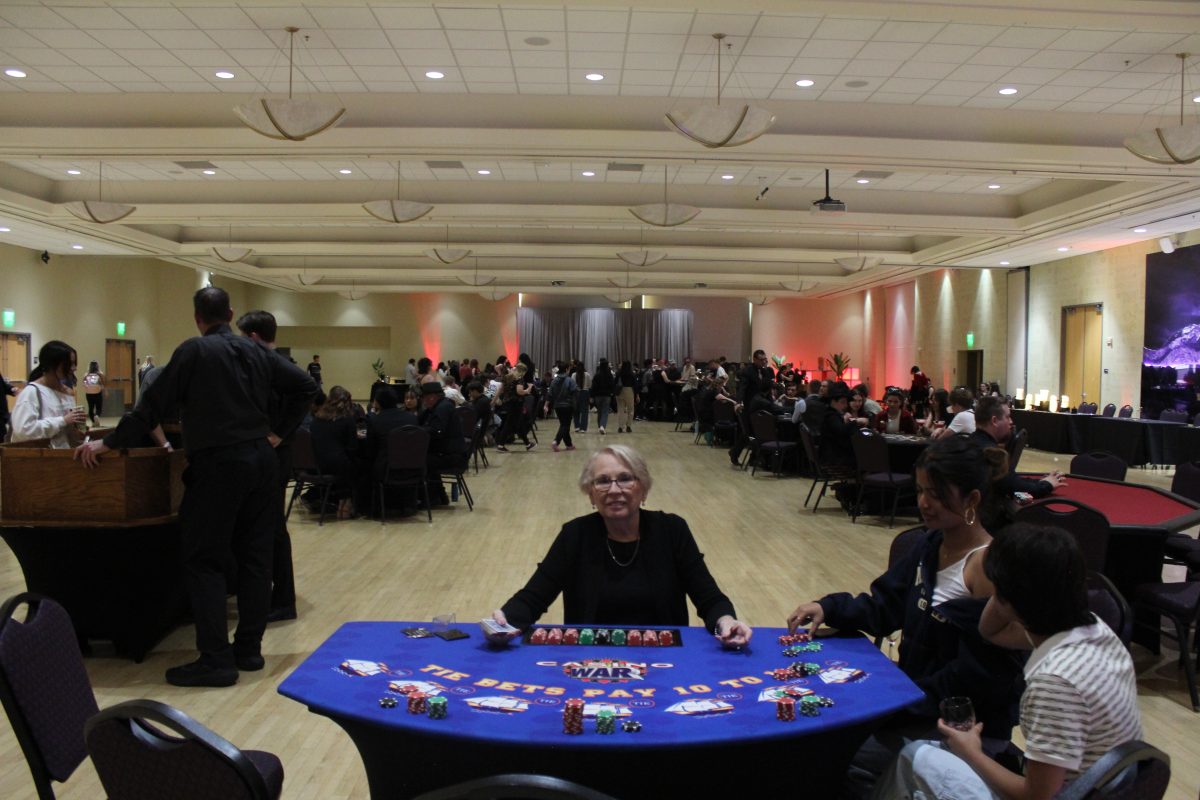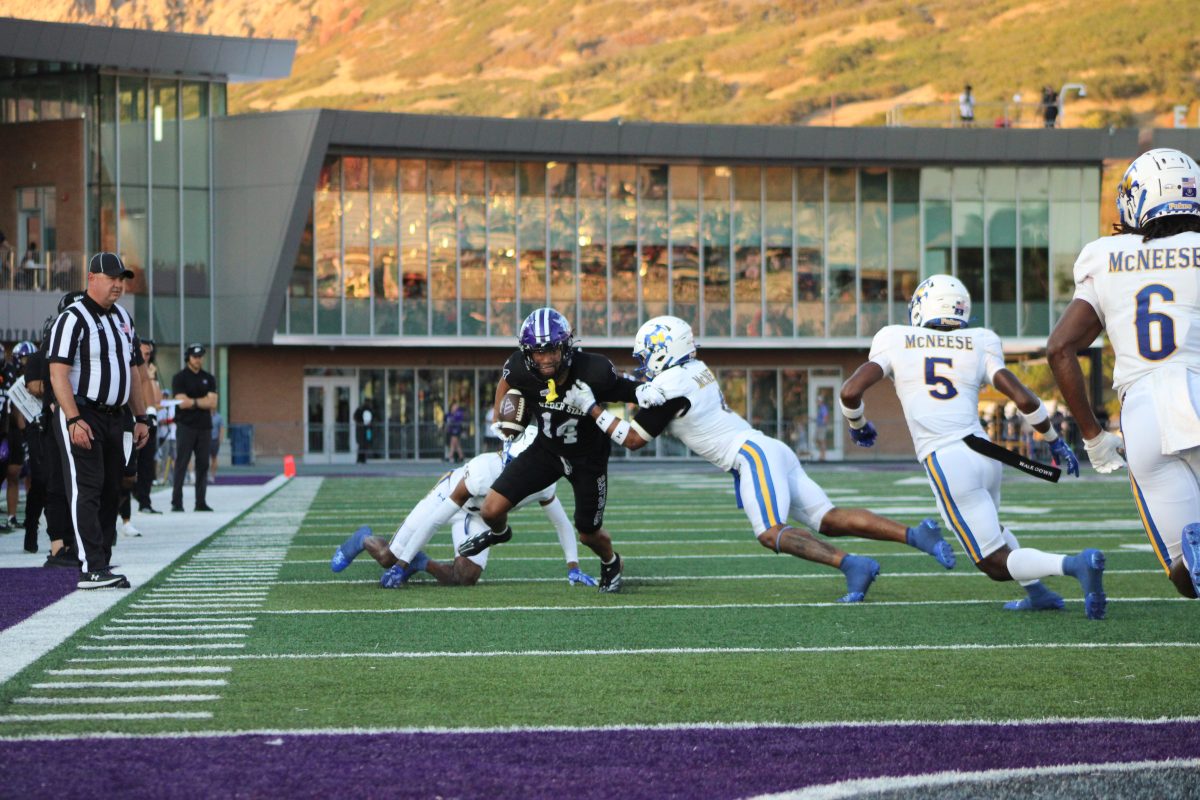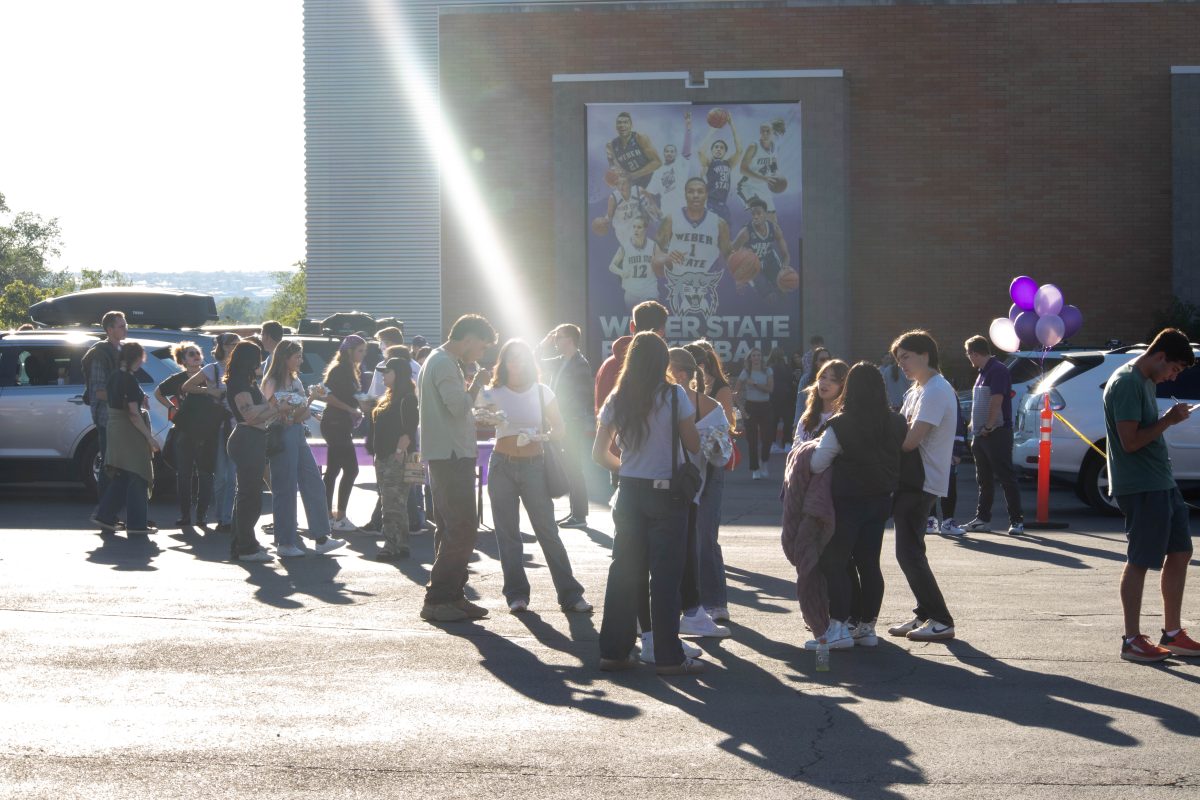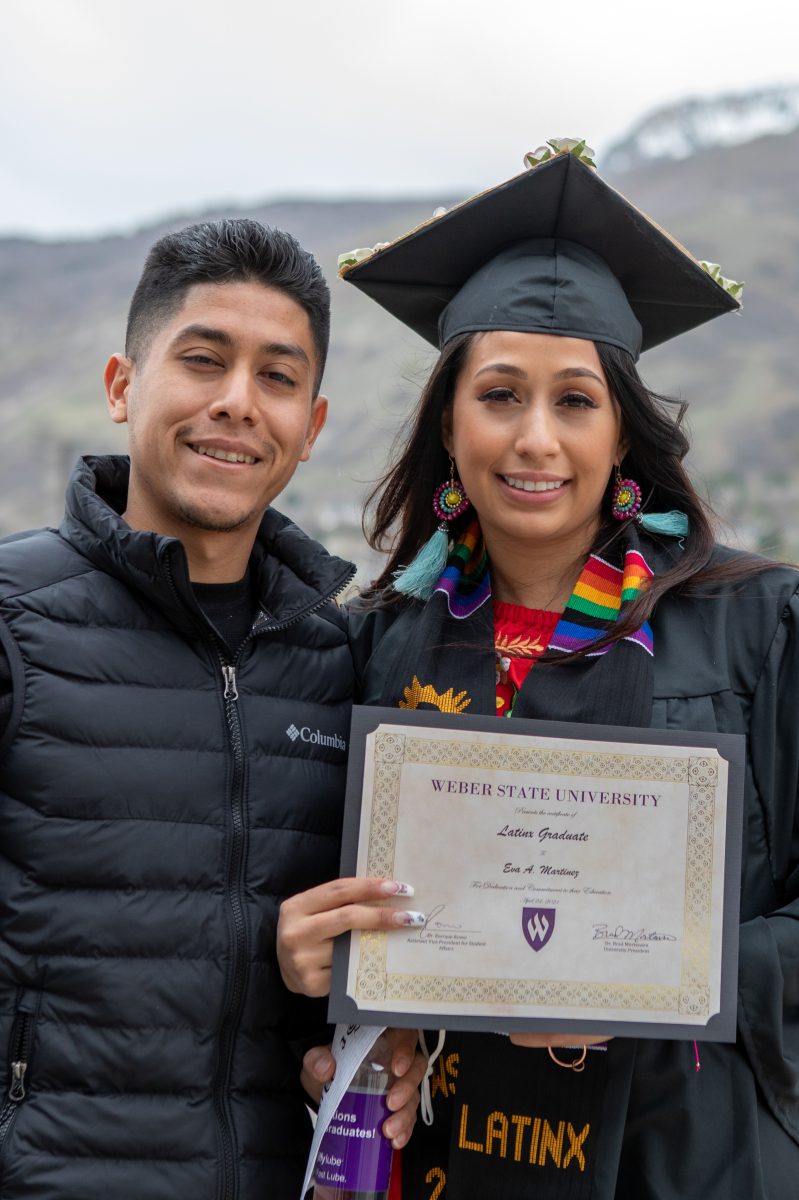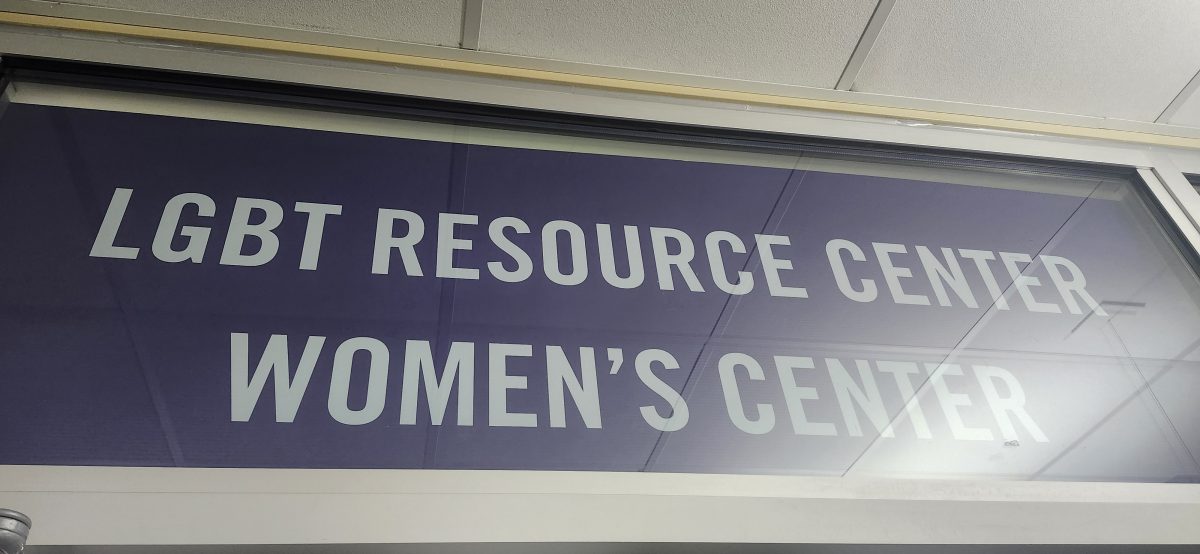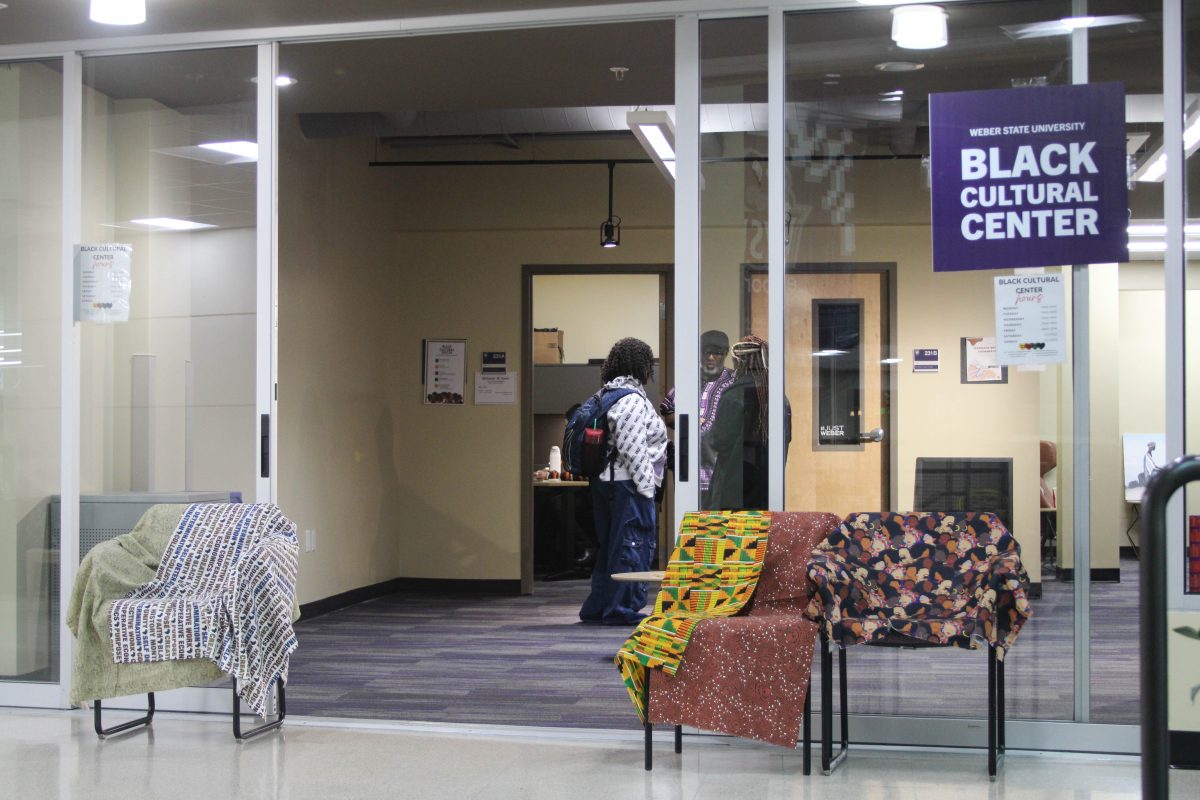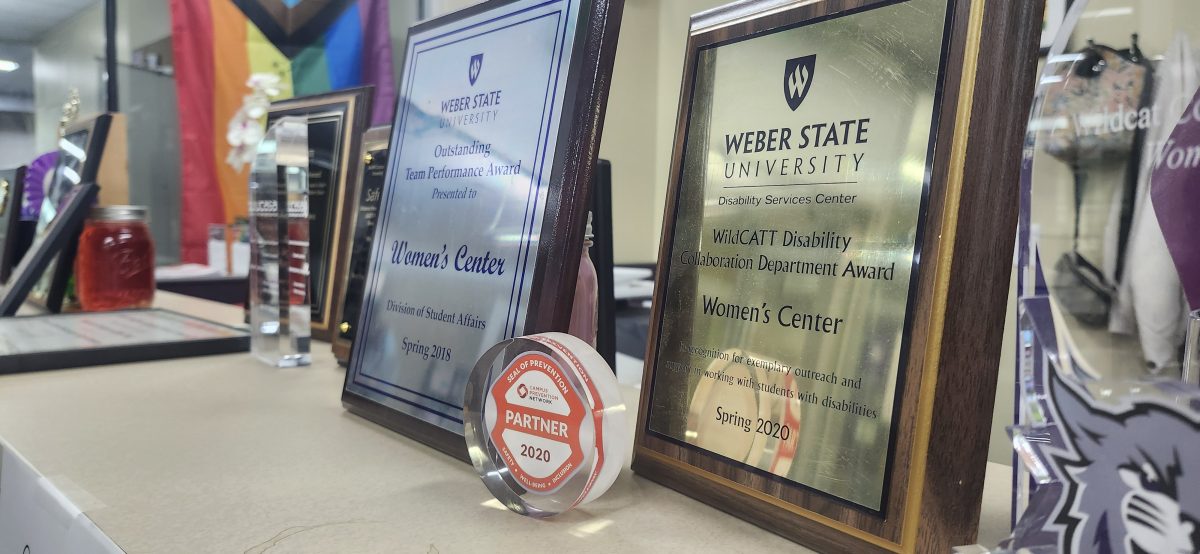Robert Putnam, research professor of public policy at Harvard University, and Shaylyn Romney Garrett, a Harvard graduate and writer, gave a guest lecture at the Wildcat Theater on Oct. 25 and spoke about their book “The Upswing: How America Came Together a Century Ago and How We Can Do It Again.”

The coauthors talked about the “I” mentality America has been growing, rather than the “We” mentality, and ways Americans can fix this problem.
While researching for their book, Putnam and Romney Garrett looked at and collected data relating to four different areas — political polarization, economic inequality, social isolation and cultural understanding — and compared them from about 1880 to 2020.
Putnam collected and compiled the data, while Romney Garrett researched the reasons behind the data and how they can fix problems the data revealed.
Putnam found that America’s current level of polarization is almost comparable to the Civil War. Americans don’t agree with each other politically.
“America has never been more politically polarized than we are right now,” Putnam said.
Putnam also found that the gap between the rich and poor is growing wider and that Americans have an “I” mentality instead of a “We” mentality.
“We’re very self-centered culturally. We’re focused on ‘me’ and not focused on what we in the country have in common,” Putnam said.

Romney Garrett explained that America is a heavily economic-driven country. One would think that during this time period the economy was what stimulated change, but Romney Garrett found that the economy was one of the last things to change.
“It’s clear that it was actually a moral and cultural shift in America that led this upswing,” Romney Garrett said.
In order to create the upswing, Americans can’t rely on the economy to change but must rely on the other factors like a cultural shift.
Romney Garrett also found that change started small. It started in the younger population in America, not the older population. The youth initiated the change and the older population grasped on to the idea and continued the change.
The younger population found ways to bring the people out of isolation while small towns and neighborhoods found ways to solve problems.
These ideas started the change to help America move towards a “We” mentality, away from the self-centered, split-in-two America. Change comes from small places that then gain traction and make their way through the country. Starting small can lead to bigger changes.
Romney Garrett said Americans need to learn from the time periods that struggled with the same problems seen today and see how they solved their problems in the past so that Americans can start solving the problems today.


